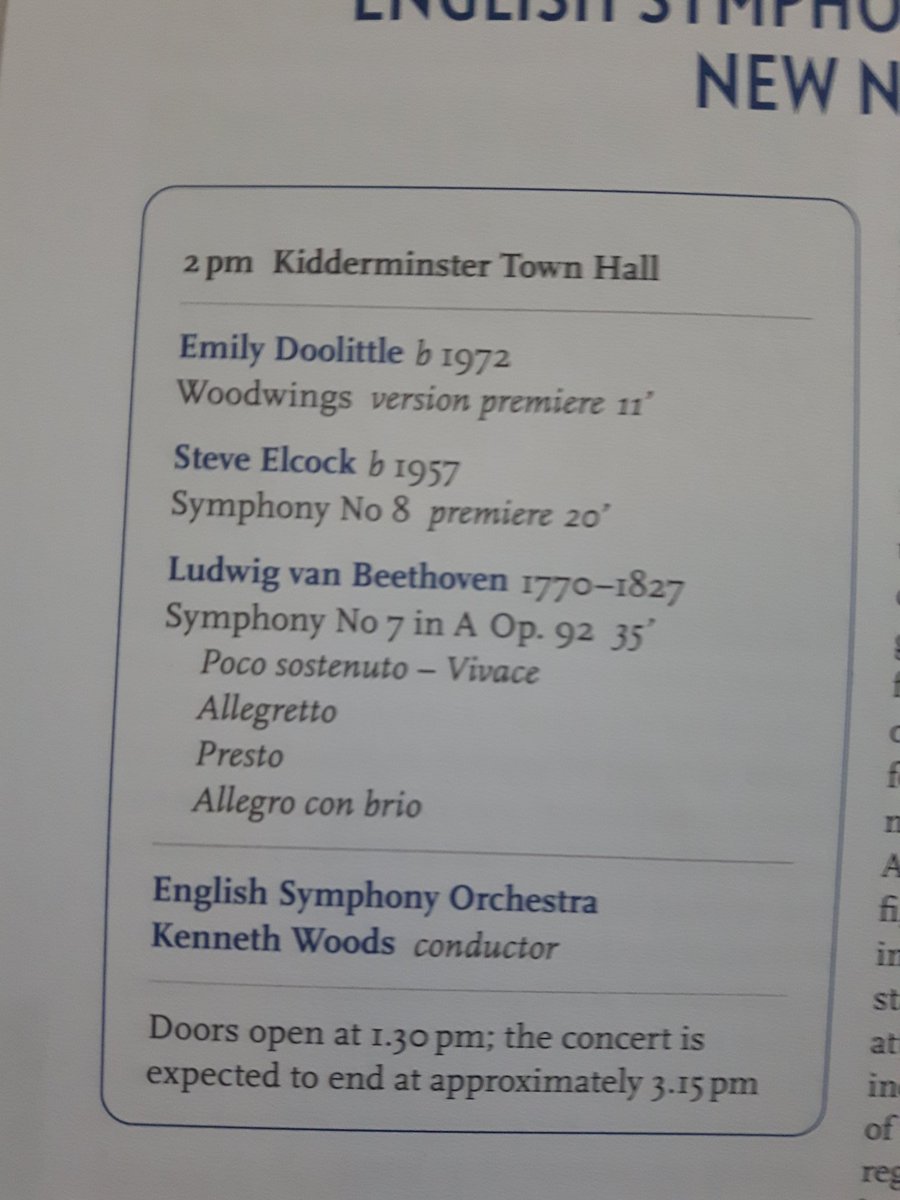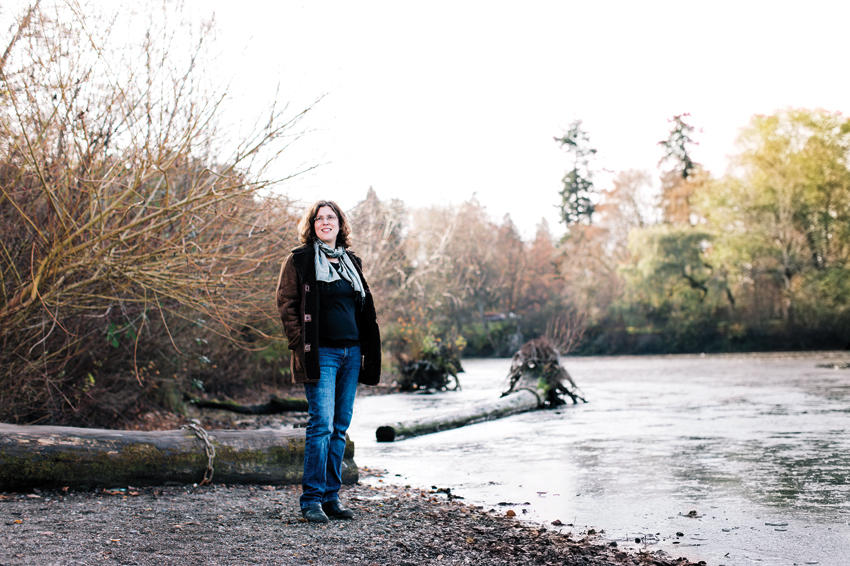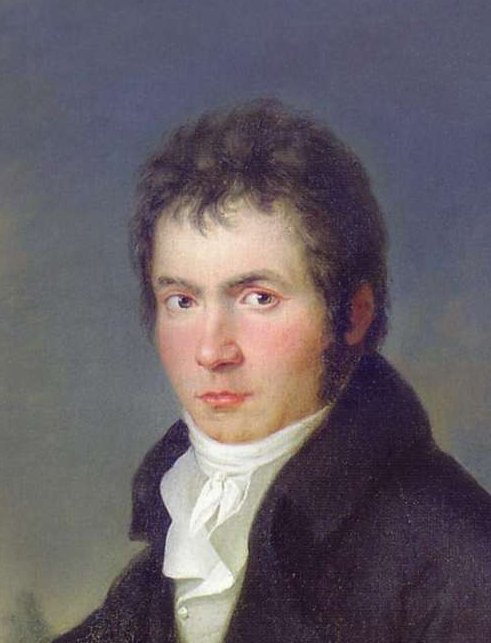
1/ A new set of #Schumann symphonies features Christian Thielemann conducting @StaatskapelleDD. As I'd not heard these works for ages, I decided to catch up with a classic set by the same orchestra.
Then things started to get a little crazy.
#SymphonistOfTheWeek #SchumannSunday

Then things started to get a little crazy.
#SymphonistOfTheWeek #SchumannSunday


2/ I must confess that I'd never listened to Wolfgang Sawallisch's classic cycle before. I'd always found Schumann's symphonies stodgy and unappealing, until Sir John Eliot Gardiner's revelatory acounts stripped the scales from my ears and opened my heart to him 20 years ago. 

3/ I decided I'd have to re-listen to Gardiner. I also wanted to hear whether period performance practices had influenced more recent Schumann performances on modern orchestras, so well-regarded cycles by @nezetseguin and @kennethwoods went onto my listening list as well. 

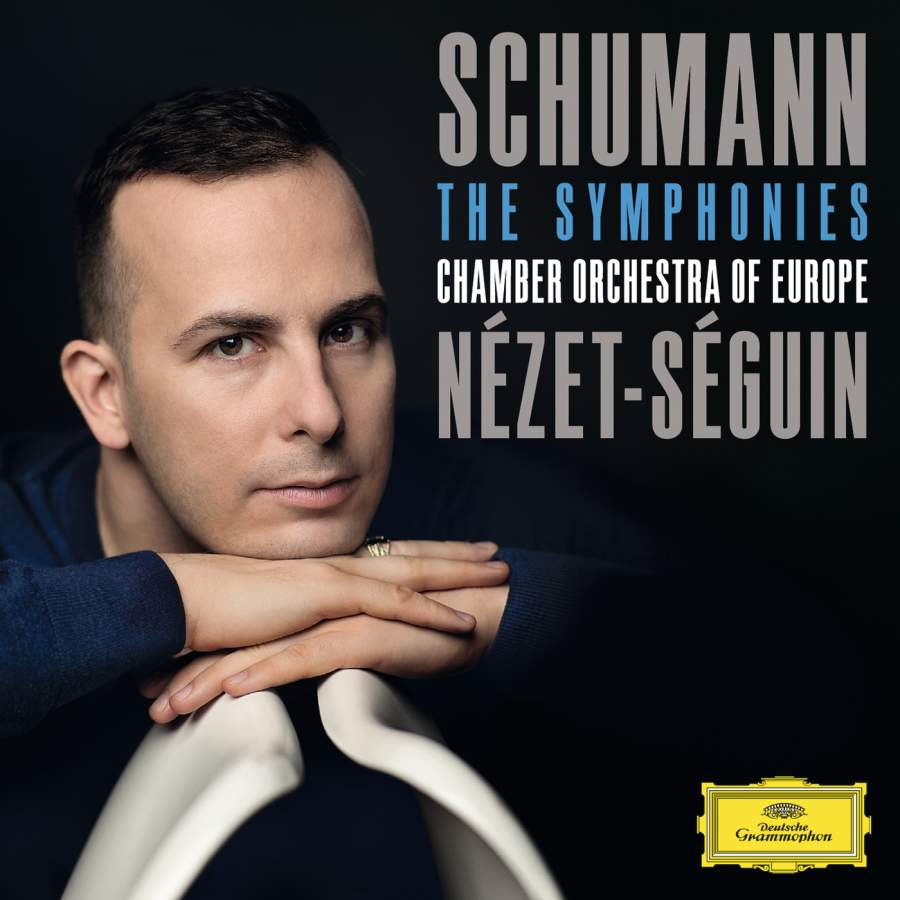

4/ As a kid my family home was a Schumann-free zone, but as my mum was a big Karajan fan, it was his cycle I tried as a student. Would I like it more 30 years later than the first time round? While I was at it, another classic @BerlinPhil cycle somehow got on my list too. 

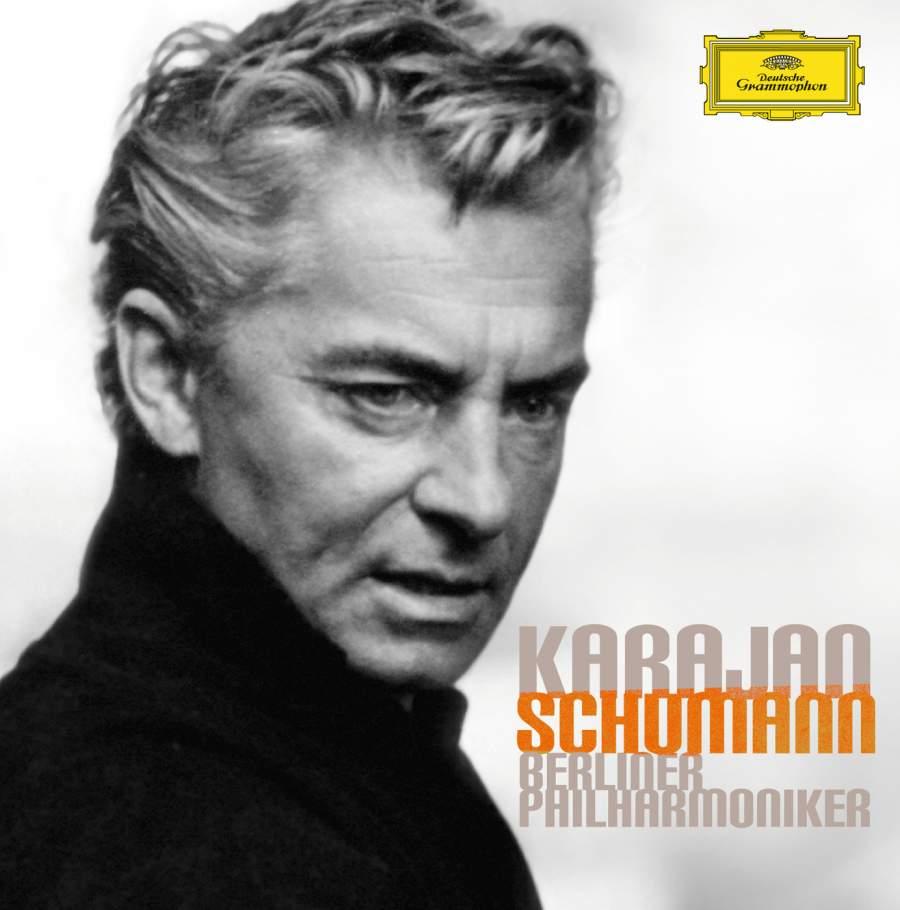

5/ Once I started listening to my 7 conductors, I found that far from getting sick of #Schumann, whose symphonies I'd had reservations about for many years, I became so hungry for more that my voyage became a mini-#SchumannOdyssey, ending up with 10 cycles in total. 





7/ #SchumannSunday After listening to so much Schumann I've realized that you can tell a lot about whether you're going to like a Schumann symphony cycle from the first minute of the Spring Symphony's Scherzo. Here are 3 examples to give you an idea.
8/ Theilemann chooses a far more expansive tempo than Schumann's Molto vivace to create the space to deliver the maximum richness of sound. It's rich, grand and beautiful, but to my ears it's rhythmically lifeless. open.spotify.com/track/4bC3ubJ1…
9/ Gardiner, Nézet-Séguin and Woods all put the "molto" into Molto vivace. Rhythms are far more athletic, the orchestral texture is much leaner. You might miss Thielemann's richness at first, but this had me tapping my feet from the very first bar. open.spotify.com/track/3sHDuN3Z…
10/ Sawallisch manages a sound that's almost as rich as Thielemann without sacrificing momentum to achieve it. Maybe you can eat your cake and still have it? open.spotify.com/track/2txS19xo…
I'll be back later today to consider the two Dresden cycles, but now I have an appointment with the Easter Bunny to keep, whether I like it or not.
11/ And we're back in the room, slightly fatter after my Easter bunny extravaganza, but ready for #SchumannSunday action. Over the next few days I'll discuss my 10 #Schumann cycles before a final countdown and my top recommendations. First up, the two @StaatskapelleDD cycles.
12/ The cycles by Sawallisch (1973) and Thielemann (2019) may be separated by almost half a century, but the magnificent sound of @StaatskapelleDD, based in the city that #Schumann called home for 6 years, is remarkably consistent and, in my opinion, very special.
13/ The resplendent orchestral sound is Thielemann's greatest asset. Rich, deep strings, glowing winds and regal trumpets and horns are very easy on the ear. The woodwind, often submerged in unsympathetic performances, generally emerge quite clearly. open.spotify.com/track/3tuJgQi6…
14/ Slow tempi and heavy rhythms often sap the drive from Schumann's symphonic flow. It's lovely but rather joyless. Thielemann exacerbates matters by slowing down further for effect in a way that feels applied rather than organic. Unless you're a hardcore fan, look elsewhere.
15/ It's not hard to see why Sawallisch's cycle with the same orchestra is so celebrated. The same richness of sound is allied to far more free-flowing rhythmic energy. Once this movement hits the allegro, everything is much more vigorous and lively. open.spotify.com/track/7aLpy5Uj…
16/ Tempi, and tempo changes, sound natural and organic. Sawallisch doesn't so much interpret the music, as allow his magnificent orchestra to release it. I frequently stopped thinking about the performers and just enjoyed the music. open.spotify.com/track/70aNJBhy…
17/ If that sounds like unqualified praise it *almost* is, but I do have some reservations. I'll tell you about them when I return on #SchumannMonday.
18/ The rich, velvety sensuousness of Sawallisch's Dresden orchestra approaches one of my ideal Schumann sounds, like an old master oil painting whose colours have deepened over the centuries. Yet it doesn't entirely avoid a problem affecting many vintage recordings ... 
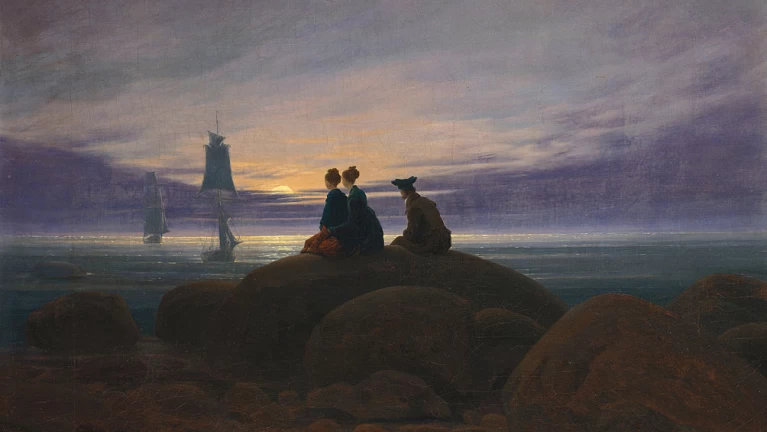
19/ Despite Sawallisch's fastidious balancing, I'd occasionally like to hear more woodwind. Symphony orchestra string sections got larger and louder since Schumann's time, and many vintage performances almost relegate the woodwind to the background. open.spotify.com/track/6jg4ei9U…
20/ Schumann embodied contrasting imaginary characters in his music. Florestan the passionate extrovert and dreamy introspective Eusebius are the best-known. Sawallisch's tasteful, self-effacing conducting occasionally smoothes the contrasts over a little too much for me.
21/ Minor reservations notwithstanding, Sawallisch's @StaatskapelleDD #Schumann is seriously classy music making, and I certainly endorse its classic status. It's almost half a century old, but wears its years very lightly indeed. 

22/ When I first tried Schumann symphonies in the 1980s, they often sounded like this. Broad tempi, thick textures, with woodwind relegated almost to the background. "Orchestral Schumann is too sickly sweet for me", I thought, and went back to Brahms. open.spotify.com/track/5FDDmH1V…
23/ Then, in the late 1990s, this Schumann cycle on period instruments was released. As I had decided that his symphonies weren't very good, it was a few years before I tried it. When I did, my entire view of Schumann changed overnight. open.spotify.com/track/040C3ahl…
24/ John Eliot Gardiner and @mco_london were lean, athletic and vigorous. Woodwind and strings were equal partners; weight was replaced by impact and darkness with light. A younger, fitter, wilder Schumann stepped out of the gloom and into the sunshine. open.spotify.com/track/7L5UTHaL…
25/ Not only did they revolutionize my view of the 4 numbered symphonies, but Gardiner's extensive set included works I didn't know existed before: the 1841 original version of the 4th, and his early "Unfinished" symphony from 1832. open.spotify.com/track/6Mj7j4pu…
26/ Gardiner's pioneering approach didn't just overturn my view of Schumann; it changed the way his music has sounded ever since. Tomorrow - two modern-instrument cycles that show how far today's Schumann is from the old-world opulence of Sawallisch or Thielemann.
27/ "With their formal awkwardness, thick orchestrations, earnest pictorialisms and lumbering rhetoric, they clearly cannot challenge the greatest masterpieces of the symphonic genre" - @nytimes on the #Schumann symphonies in 1986.
Ouch.
Ouch.

28/ Gardiner's Schumann overturned many such condescending attitudes, including mine. Balanced, transparent and energetic, it showed that Schumann's structure and orchestration were perfectly effective when played with sensitivity to the sound world he expected.
29/ A new generation of conductors integrated such historically-informed ideas into Schumann on modern instruments. @kennethwoods is often faster even than Gardiner yet never rushes the music which is marked "Ziemlich langsam" (Fairly slow)
open.spotify.com/track/0uJtbpjj…
open.spotify.com/track/0uJtbpjj…
30/ @Orchestra_Swan's light articulation puts air into Schumann's oft-criticized textures. Woodwind emerge with almost effortless clarity in the above example, while fast music fizzes with energy without ever losing its poise. open.spotify.com/track/4ZfuNBxm…
31/ @kennethwoods and @Orchestra_Swan deliver a Schumann cycle that breathes open air and flows like a fresh mountain stream, with not a trace of "lumbering rhetoric" to be heard. Highly recommended, and you get @hansgalcomposer's great symphonies too. 





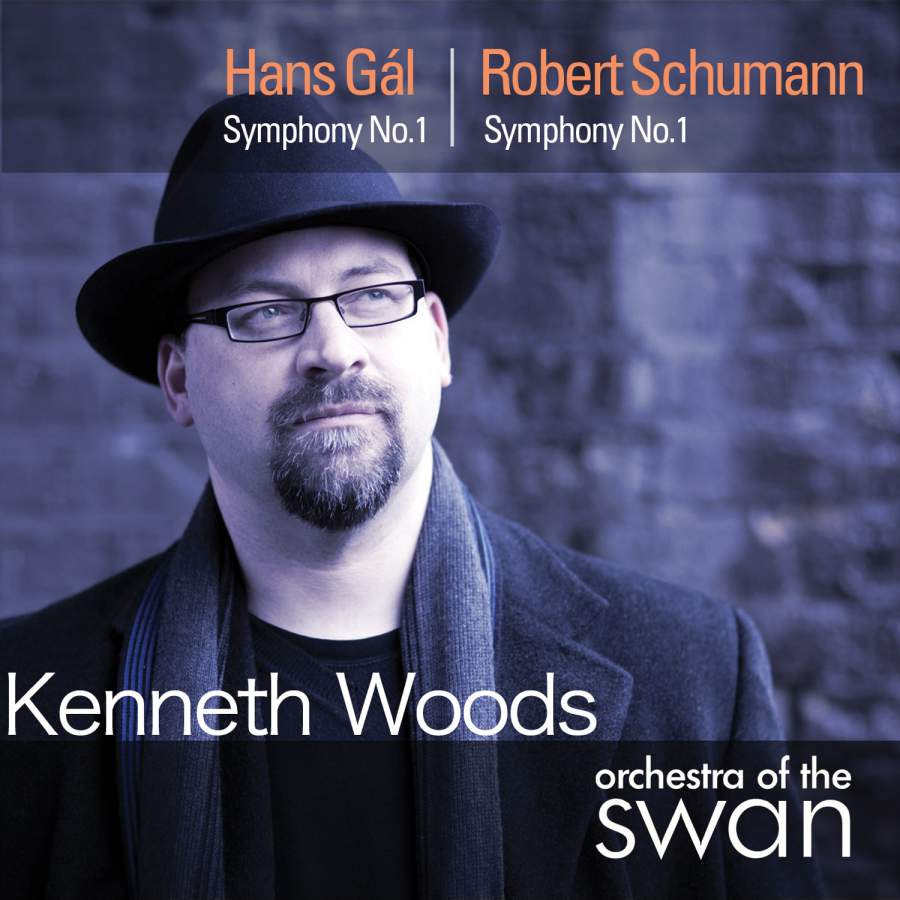

32/ I'm in the USA for two weeks. My #Schumann survey is also going stateside for some classic recordings from George Szell @CleveOrchestra and Leonard Bernstein @nyphil. 




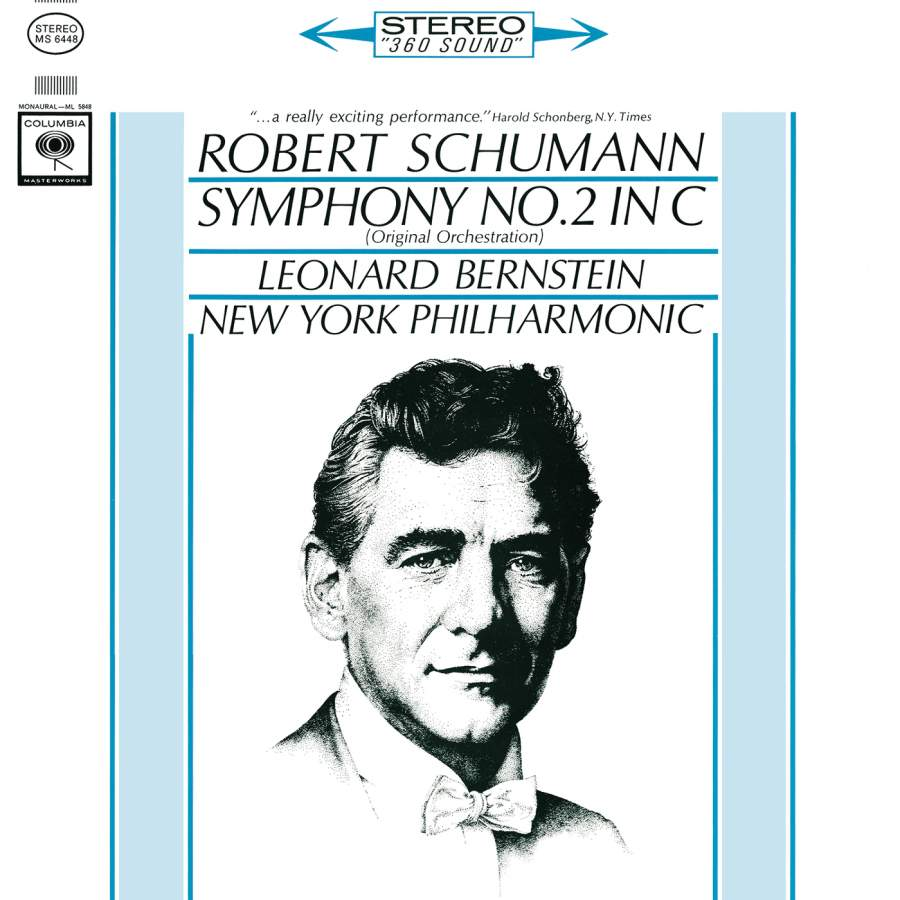
33/ I thought transparency, fast tempi and beautifully balanced woodwind only appeared with Gardiner's historically-informed #Schumann in the 1990s. I was wrong. Hungarian émigré George Szell was doing it all in Cleveland almost 4 decades before.
open.spotify.com/track/7rtBAcz8…
open.spotify.com/track/7rtBAcz8…
34/ With the crack virtuoso @CleveOrchestra to do his bidding with unprecedented accuracy and unanimity of ensemble, Szell brought the same elegance, rhythmic point and diaphonous textures to #Schumann that distinguish his classic Mozart. open.spotify.com/track/0wOt7gnW…
35/ Szell's airy but strongly driven style is in many ways the opposite of Sawallisch's rich-toned, expansive @StaatskapelleDD #Schumann. It may feel more "classical", but it's not short of atmosphere, expression or power.
open.spotify.com/track/0kupL9al…
open.spotify.com/track/0kupL9al…
36/ The recording quality sometimes shows its age, but is seldom a barrier to enjoyment. The horns are a little backward in this movement, which upsets the rhythmic interplay at the start, but elsewhere all is transparency and grace. open.spotify.com/track/4NzjsK9z…
37/ I found Szell's elegance, precision and symphonic purpose very much to my tastes. He'll be a serious contender when I choose my favourite old-school #Schumann cycle. If you love these works, Szell and the @CleveOrchestra are still mandatory listening after 60 years. 





38/ For performances that bring out Schumann's wild, extrovert Florestan side like no one else, there's only one man for the job. Step forward Leonard Bernstein. If the end of this doesn't raise your spirits, you may not have any left to raise. open.spotify.com/track/4yvKhWhJ…
39/ Bernstein's New York cycle is contemporary with Szell's but the resemblance ends there. Where Szell is precise and graceful, Bernstein goes for big, bold expression at every turn. Ironically, this can work against Schumann's introvert,sensitive side. open.spotify.com/track/7dYvQg4q…
40/ Bernstein's search for maximum expression sometimes overwhelms Schumann's more introvert, dreamy music with too much love, as if Eusebius is being hugged to death. The crude recording quality doesn't help either. open.spotify.com/track/7dYvQg4q…
41/ The woodwind are often fighting a pitch battle to be heard over what sounds like the largest string section ever assembled. Combined with Bernstein's turn-it-all-up-to-11 intensity, it results in an epic, but ultimately wearing sonic experience. open.spotify.com/track/5hAlMmzx…
42/ I enjoyed Bernstein in New York, but a lack of both technical and interpretative finesse put it out of the running. Will more modern recording and a new city make a difference to Bernstein's #Schumann? Or will it mean nothing to me? Find out tomorrow.
43/ Vienna really was the City of Dreams for Bernstein's #Schumann. His second cycle features the @Vienna_Phil at its most regal. Their polish and finesse, allied to far better recording quality, casts a special magic from first note to last. open.spotify.com/track/2pHe9qZ3…
44/ Drawing on the seemingly infinite sustaining power of his beloved Vienna Phil, Bernstein could be even more expansive than in New York. His 2nd symphony's adagio is almost 3 minutes slower than anyone else, but doesn't seem a second too long.
open.spotify.com/track/7FlEWyt4…
open.spotify.com/track/7FlEWyt4…
45/ Bernstein's 2nd Schumann cycle, whether dreamily brooding or bounding forward like an excited dog, maximizes the contrasts between the extrovert and introvert Schumann. I might quibble with this or that tempo, but the emotional effect is overwhelming. open.spotify.com/track/4LKjwNxW…
46/ Listen to how much better-balanced this is than Bernstein's earlier New York version. Is it too grand, too Wagnerian, too proto-Mahlerian even? The thought crossed my mind more than once, but I was having so much fun that in the end, I didn't care. open.spotify.com/track/4mfmgMe9…
47/ Bernstein and the @Vienna_Phil will be prominent in my final reckoning. The transatlantic connection aside, today's second #Schumann cycle featuring Canadian Yannick @nezetseguin at the helm of @ChambOrchEurope. could hardly offer greater contrast. open.spotify.com/track/3MpCSZ6r…
48/ This set offers the transparency, balanced textures and athleticism of post-Gardiner, historically-informed Schumann, allied to a touch of the warmth of old-world Europe, courtesy of an orchestra that really do play Schumann like chamber music.
open.spotify.com/track/5ZOnC8Hn…
open.spotify.com/track/5ZOnC8Hn…
49/ The intimate scale might surprise anyone brought up on Schumann in the grand manner, but I was soon won over. Every bar oozes virtuosity individual and corporate, an intense love of the music, and a real sense of purpose. This is something special.
open.spotify.com/track/3k8gT1pk…
open.spotify.com/track/3k8gT1pk…
50/ My final recordings tomorrow feature three old Gods. I'll find that I don't believe in the Schumann of two of them anymore. Which one still rewards my faith? 




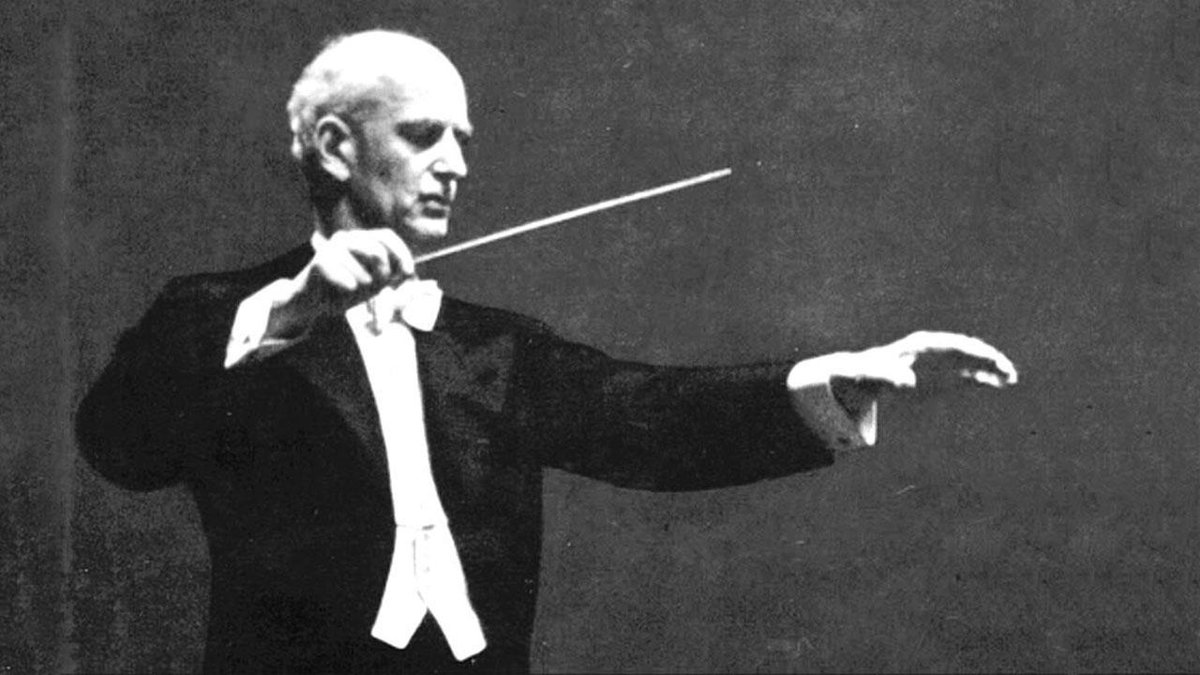
51/ As an impressionable student, Karajan put me off Schumann for a decade. Re-listening to the Spring Symphony did not improve my opinion. Self-conscious grandeur, slow tempi, and sickly sweetness. I love Herbie, but this makes me feel slightly queasy. open.spotify.com/track/34a91bH9…
52/ The same chromium-plated heavy orchestral sound does nothing for the 2nd either. In the Rhenish, however, Karajan's supersized approach works much better. He and his Berliners revel in its bombastic grandeur to great effect. open.spotify.com/track/2dZTQH3S…
53/ The Rhenish aside, Karajan's Berlin Schumann exhibits all the traits that make many turn away from him. His later Vienna 4th is another matter - it's indulgent and not always rhythmically precise, but this time you can feel the love. open.spotify.com/track/50ReAxXs…
54/ After Herbie's bloated Berlin Schumann, the poise and refinement of the same orchestra under Rafael Kubelik a decade earlier was a relief. The regal yet sensitive brass are a special feature, but the whole orchestra sounds so much more wholesome. open.spotify.com/track/4Yk4b4iM…
55/ Despite the excellent playing, as Kubelik's cycle progressed I found its weighty seriousness increasingly dreary. I wanted more momentum, energy and excitement. Many fine qualities, but not a front runner. open.spotify.com/track/1C6oR0LU…
56/ My final Schumann was Furtwängler's now-legendary 4th. I feared it might not live up to its reputation. I needn't have worried. It's even broader than Kubelik, but the ardour, volatility and imagination are on another plane entirely.
open.spotify.com/track/1R3kpD3s…
open.spotify.com/track/1R3kpD3s…
57/ This 66-year-old mono recording has the best orchestral balance of any performance in my survey. Furtwangler and his extraordinary orchestra make a mockery of the idea that Schumann's orchestration is unskilled. An amazing performance, and absolutely essential listening. 

58/ After 24 hours, 47 symphonies and 10 cycles, today it's:
#SchumannSunday 2: The Reckoning.
What have I learned about #Schumann, and which recordings of his symphonies would I recommend?
#SchumannSunday 2: The Reckoning.
What have I learned about #Schumann, and which recordings of his symphonies would I recommend?
• • •
Missing some Tweet in this thread? You can try to
force a refresh





